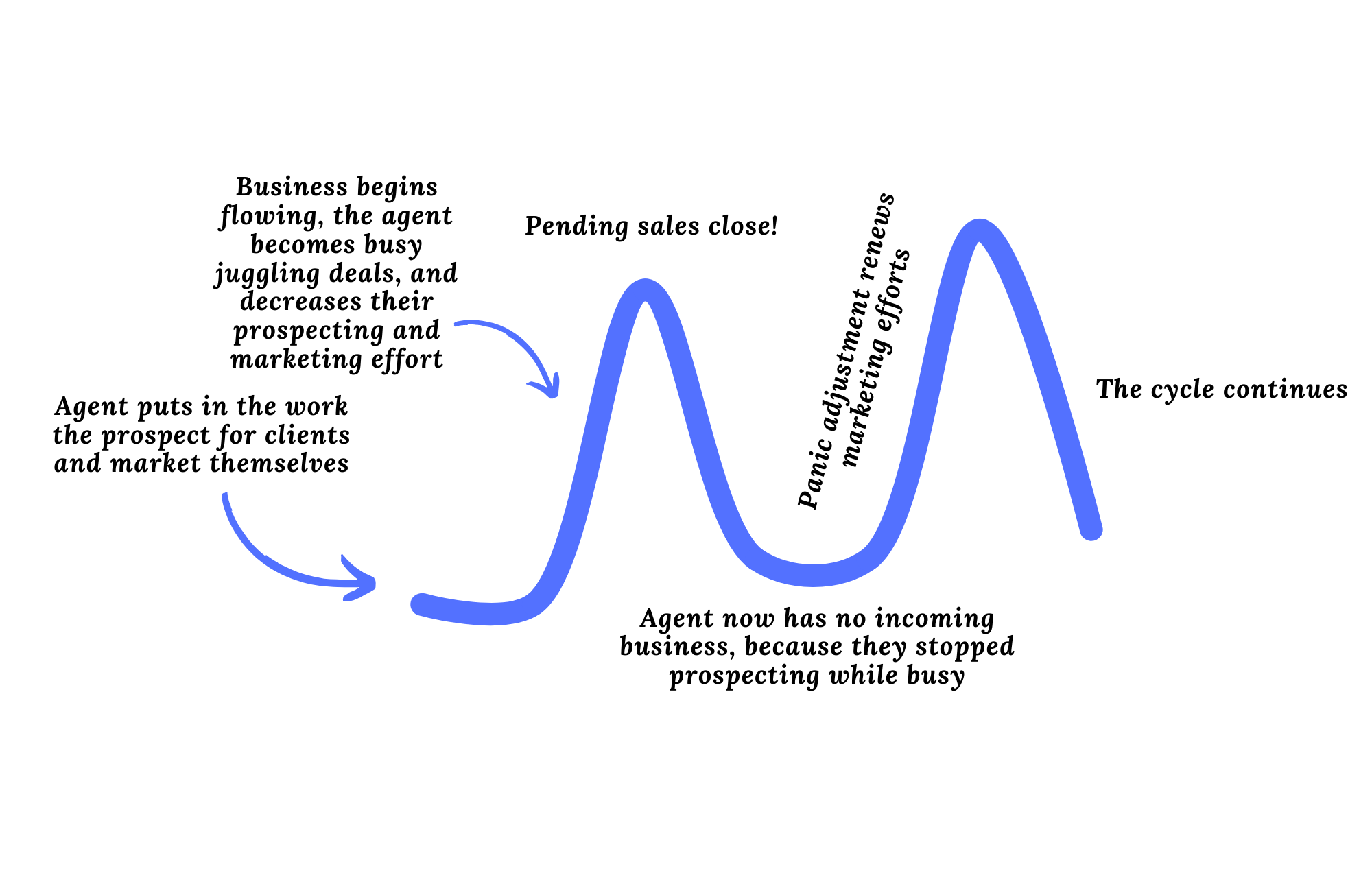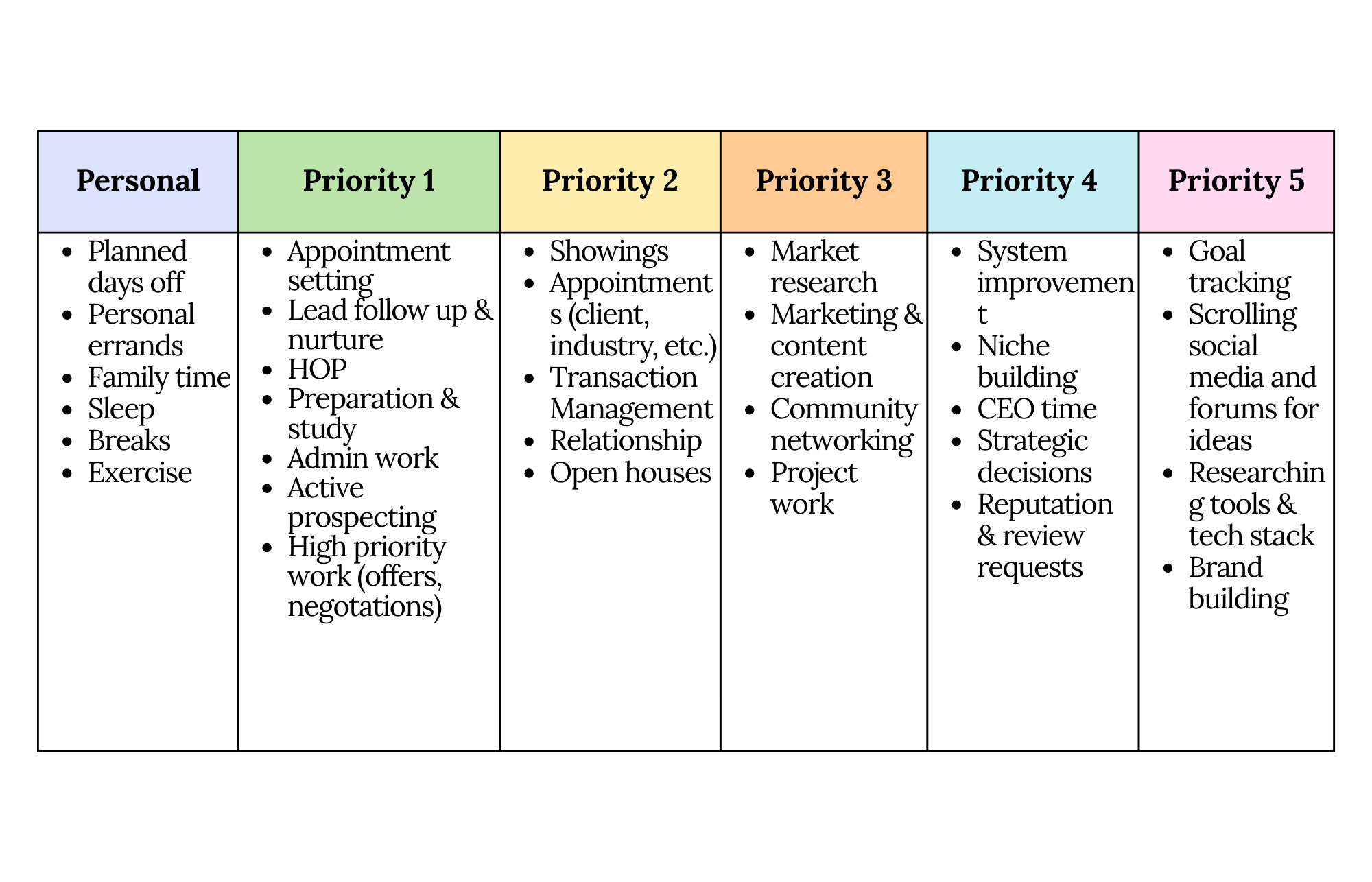There’s a point in almost every transaction where clients start to unravel — inspections bring nasty surprises, appraisals come in tight, emotions run high. No matter how calm or competent we are as agents, it’s human nature for buyers and sellers to feel anxious when so much is at stake!
A while back, I started including what I call a “Letter from the Future” in my initial welcome booklets. It’s a short message that reminds clients that the stress they’ll feel along the way is temporary, that the bumps are normal, and that the story always comes together in the end. It’s simple, but it works — it brings perspective, trust, and a little bit of peace back into the process.
Here’s the letter I send to calm every client’s nerves — and why you might want to write your own.
The Intro
The intro is important – you're setting up the why of this letter...
Dear Future You,
Welcome to a glimpse into your successful real estate journey! As we embark on this adventure together, it's important to remember that this letter comes from a place of foresight and preparation, not of fear or intimidation.
My goal is to illuminate the path ahead, providing you with the insight and understanding necessary to navigate the twists and turns of the real estate market with confidence.
This letter is meant to enlighten, not frighten, guiding you through both the exciting milestones and the potential challenges with confidence and clarity.
Let's dive into the adventure that's about to unfold, with a realistic outlook on what to expect and how to navigate the process for the best possible outcome.
For Buyers
The journey is different for buyers and for sellers, so make sure your letter fits your client's scenario.
THE LETTER:
What To Expect When Buying A Home
Remember: I have encountered every one of these scenarios many times before. Together, we will find the solution that is best for you.
- Delayed Response to Offers:
- Sellers may take their time responding to offers, especially if they're weighing multiple options or if the market conditions favor them.
- Setting Offer Deadlines:
- In a competitive market, sellers might set a deadline for all offers to be submitted. This tactic can create a sense of urgency among buyers and potentially lead to multiple offers.
- Not Setting Offer Deadlines:
- Conversely, some sellers may not set a deadline, either to keep the window open for more offers or due to a lack of urgency to sell. This can be frustrating for eager buyers, as it may prolong the buying process and create uncertainty.
- Refusing Repair Requests:
- After a home inspection, buyers typically request repairs or price reductions for issues that were uncovered. Some sellers may refuse, particularly in a seller's market or if the requests are considered minor. Buyers must decide whether to accept the property as-is, negotiate further, or walk away.
- Selling "As-Is":
- Some listings are marked "as-is," indicating the seller has no intention of making, or paying for, any repairs.
- High Asking Prices:
- Sellers might list their homes at higher prices than what buyers perceive as fair market value. Understanding market trends and having a good real estate agent can help buyers navigate these situations, whether it means negotiating the price down or walking away.
- Unusual Showing Times:
- Be prepared for sellers who may have specific or unusual times when they allow showings. This could be due to their work schedules, personal preferences, or other commitments. Flexibility and patience will be your allies in these situations.
- Discrepancies Between Online Photos and Reality:
- It's not uncommon to find that homes look significantly different in person than they do online. Some may appear worse, revealing issues not visible in photos, while others might pleasantly surprise you by looking much better. Keeping an open mind and reserving judgment until you've seen a property in person is crucial.
- Discovering Hidden Gems:
- Amid your search, you might stumble upon hidden gems that exceed your expectations, offering unique features or value that you hadn't anticipated. These pleasant surprises can sometimes be the perfect match for your needs and dreams.
- Difficult Listing Agents:
- While many listing agents are professional and easy to work with, you may encounter some who are challenging or uncooperative. It's important to maintain open and direct communication and rely on your own agent to navigate these interactions. Remember, your agent is there to advocate for you and help smooth out any bumps along the way.
- Embracing the Emotional Journey:
- The process of buying a home is undoubtedly filled with a mix of emotions and stress, from the anticipation of searching for the right property to the excitement and nerves of closing the deal. Yet, it's this very emotional journey that makes the moment of finally holding the keys so incredibly rewarding.
For Sellers
THE LETTER:
What To Expect When Selling A Home
Remember: I have encountered every one of these scenarios many times before. Together, we will find the solution that is best for you.
- Petty Requests Over the Home Inspection
- Buyers may nitpick minor issues found during the home inspection, requesting repairs or concessions that seem trivial. It's important for sellers to distinguish between reasonable requests and those that are insignificant, focusing on the bigger picture to keep the deal moving forward.
- Surprise Repairs:
- Even those who take excellent care of their homes can discover unknown issues during the home inspection. Be prepared for the possibility that you will need to work with the buyer and navigate through needed repairs.
- Multiple Visits to the Property:
- Expect buyers to want to see the house several times before making a decision, sometimes with different family members or friends for their opinions. While it can be inconvenient, these visits are critical for buyers to feel confident in their decision.
- Lowball Offers:
- Some buyers start with a lowball offer to see if they can secure a bargain. Sellers should not be offended by these offers; instead, view them as a starting point for negotiations. It's key to have a strategy for countering such offers effectively.
- Request for Closing Cost Assistance:
- Especially in markets where buyers have more leverage, requests for the seller to cover some or all of the buyer's closing costs are common. Sellers need to consider their bottom line and the market conditions when responding to these requests. Often, these requests are because a buyer genuinely needs them in order to afford to move forward with the purchase.
- Insistence on Specific Closing Dates:
- Buyers may have specific needs regarding the closing date, often to coincide with the end of a lease or the sale of their current home. Flexibility, within reason, can be an asset in negotiations.
- Closing Delays:
- Various factors, including financing approvals, inspections, appraisals, and title issues, can lead to delays in closing, affecting your moving plans and financial calculations.
- Dealing with Multiple Offers:
- While receiving multiple offers can be advantageous, evaluating them and choosing the best one involves considerations beyond just the price, such as contingencies and buyer qualifications.
- Difficult Buyer’s Agents:
- As a home seller, it's important to be prepared for all types of interactions, including the possibility of working with difficult buyer's agents. While many agents conduct themselves with professionalism and integrity, you may occasionally encounter one who presents challenges or seems uncooperative. In these instances, rely on your listing agent’s expertise and experience. They are well-equipped to handle difficult negotiations and to advocate on your behalf.
- Embracing the Emotional Journey:
- For home sellers, embracing the emotional journey of selling your home involves a unique mix of feelings, from the nostalgia of leaving a cherished space to the anticipation of moving on to new beginnings. This emotional process is a significant aspect of selling your home, as it marks the end of one chapter and the start of another. The satisfaction of passing your keys to the new owners comes with a sense of pride in having maintained and prepared your home for its next inhabitants.
My Format
There are many ways you can include this letter in your own buyer or seller presentations. Personally, I have had great success including it in my guidebook and reviewing it at the first meeting with a new client.
Here is an example of what it looks like!

Need More Help Growing Your Real Estate Career?
Bellamy House offers coaching for new and developing agents and entrepreneurs. Email us at BellamyHouseAdvisors@Gmail.com or check out our coaching page.

© 2025 Bellamy House. All rights reserved.
The resources, templates, and content provided are for educational and informational purposes only and do not constitute legal, financial, or business advice. Use of these materials does not guarantee specific results. By accessing this site and its materials, you agree not to reproduce, resell, or distribute any content without written permission.













